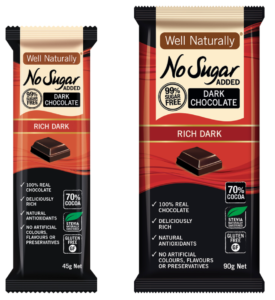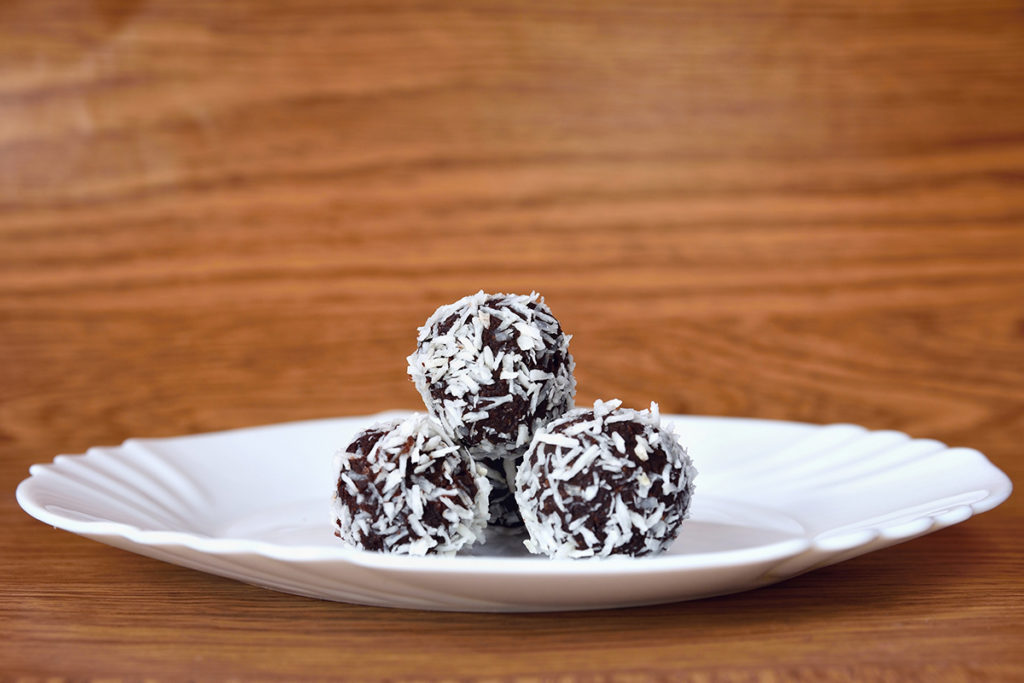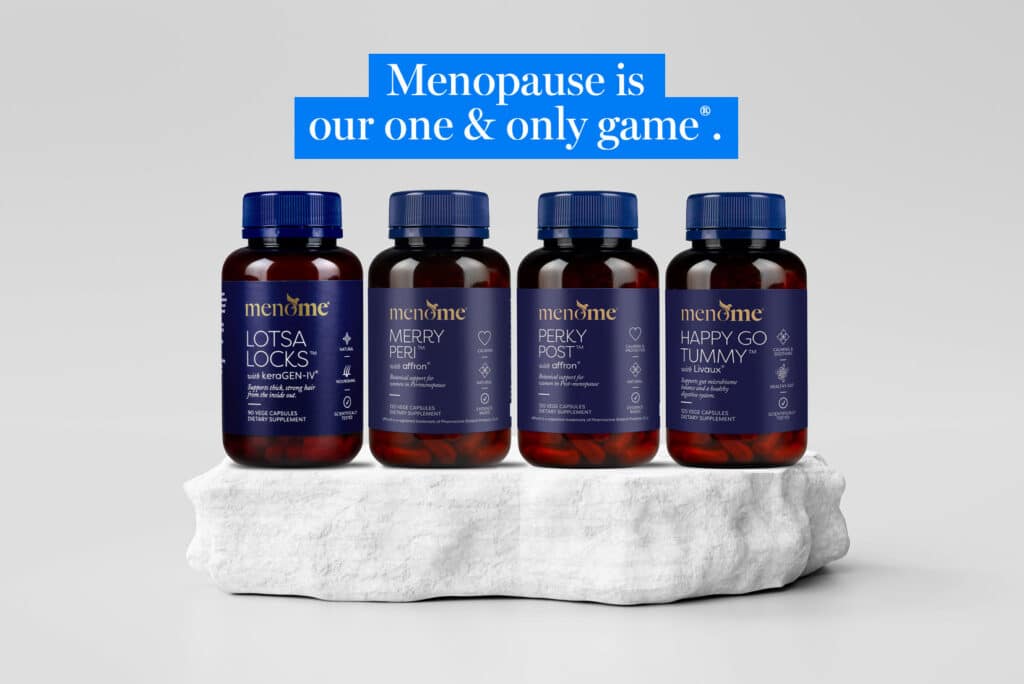One of the common – we won’t call it a sign – side effects of peri- and post-menopause is a craving for chocolate for many women. It’s a bit like that chocolate craving some of us used to get prior to our period!
While traditional chocolate is often sugar-laden, if you’re a regular here, you’ll know I’m often banging on about how sugar can play havoc with our menopause symptoms. In my defence, it’s for good reason.
As a result, I’m sharing a deliciously rich recipe for chocolate peanut butter balls with you. Treats without refined sugar.
Although they’re not guilt-free – they’re a treat and not meant to be eaten in one go – you can enjoy one every so often.
Their true beauty is that they won’t cause hormonal havoc for you.
Why do we get cravings?
During peri/menopause our bodies have an even greater need for good nutrition. More antioxidants, more vitamins, more minerals. And if we’re not getting enough or we’re not sleeping well it can lead to cravings. Especially if we’re not sleeping too.
And if we succumb to that sugary snack it can trigger everything from hot flushes to anxiety to joint aches and that old chestnut – weight gain.
What’s more that same sugary (or refined carbohydrates) snack can spike your blood sugar leading to more cravings!
Why sugar & peri/menopause don’t mix
I know it’s hard to bypass it if you love it – but sugar really isn’t your friend through peri/menopause.
It can play havoc with insulin, which is a hormone that’s a major player during peri/menopause. Consequently, as we move through perimenopause and our estrogen and progesterone levels decline, we may become more insulin resistant. This disrupts our blood sugar levels, and as insulin is our fat storing hormone this can contribute to weight gain. In addition, sugar can cause insulin spikes which lead to hormonal imbalances and set off unwanted signs like insomnia, night sweats and all of the ones we’ve mentioned above.
Why dark chocolate & peri/menopause do mix
There’s been lots of info around and about for quite some time now about the health benefits of chocolate. But let’s be clear, this is dark chocolate, not the milky kind. The dark chocolate that comes from cocoa is packed full of antioxidants, which is something our nutrient-craving meno bodies love.
The good news? Dark chocolate (with low or zero sugar) can actually improve our menopause ride by helping to reduce our stress levels, improving blood flow to the heart via flavanols and making us feel genuinely happier due to potentially increasing serotonin.
The recommended serving of dark chocolate is two small squares per day.
I’ve discovered an excellent version at the supermarket. It’s made in Australia and is called Well Naturally No Sugar Dark Chocolate. It contains 70% cocoa, is sweetened with stevia (so you won’t get those insulin spikes refined sugar causes) and it’s gluten-free. You can buy it here.

Now onto the recipe! It’s so simple.
Adapted from Ruled.Me.
I used stevia as a sweetener, but you could use erythritol as Ruled.Me did. Or, my favourite is rice syrup.
Rich Chocolate Peanut Butter Balls
Makes approximately 10

Ingredients:
- 6 tblsp peanut butter
- 6 tblsp cacao powder
- 4 tsp almond flour
- 2.5 tsp stevia or rice syrup
- 1 tblsp olive oil
- Coconut for rolling
Method:
- Measure all of the ingredients into a bowl.
- Depending on the temperature it may pay to soften the peanut butter by sitting it in a bowl in hot water first – this makes blending easier.
- If the mixture isn’t blending well, add a couple of drops of olive oil until you have the desired consistency. You don’t want it too runny.
- Pop into the freezer for an hour.
- Remove from freezer and taking teaspoonfuls roll in your (lovely clean) palms into balls.
- Drop each ball onto a plate of shredded coconut and roll to cover.
Enjoy!











